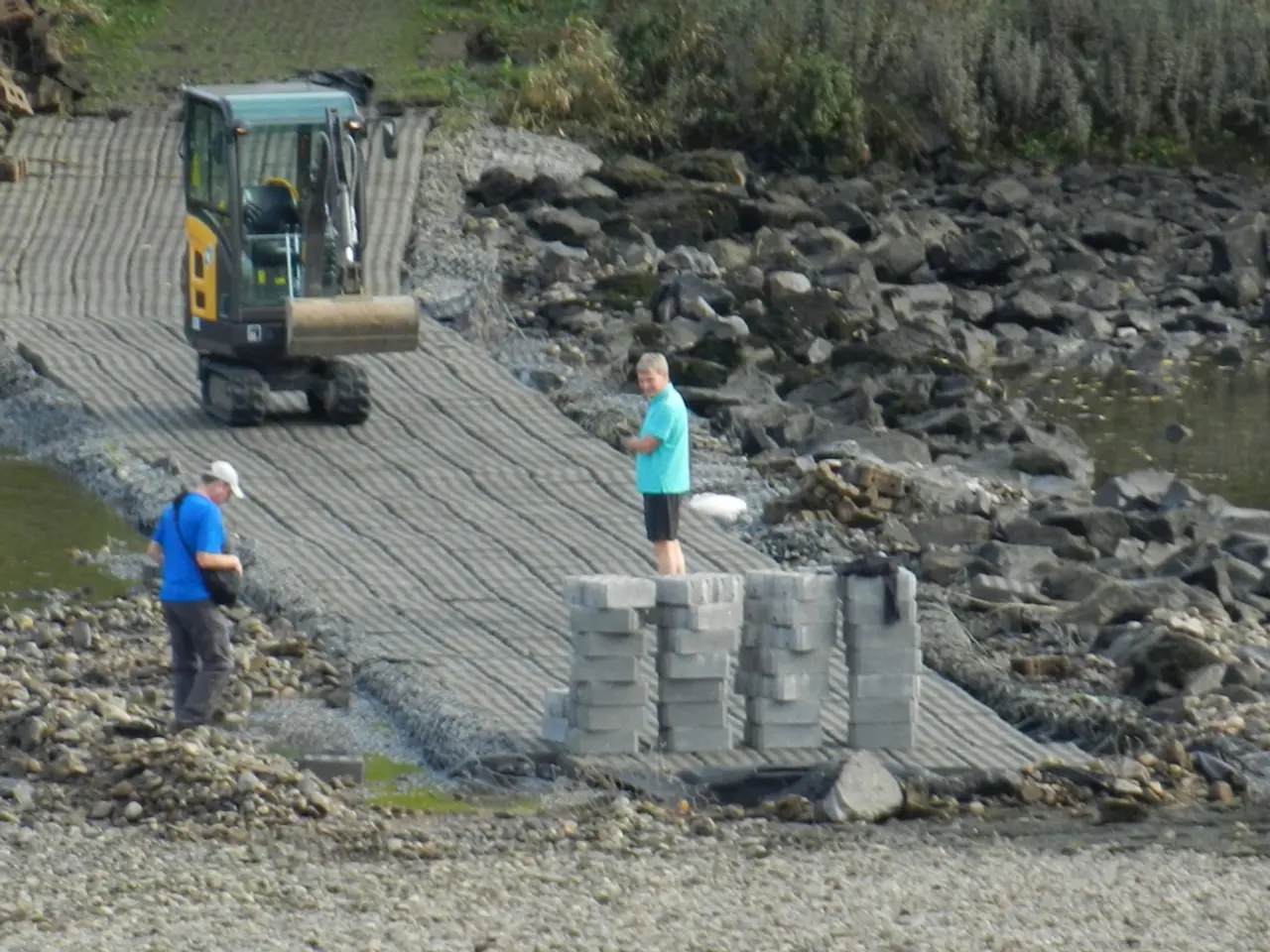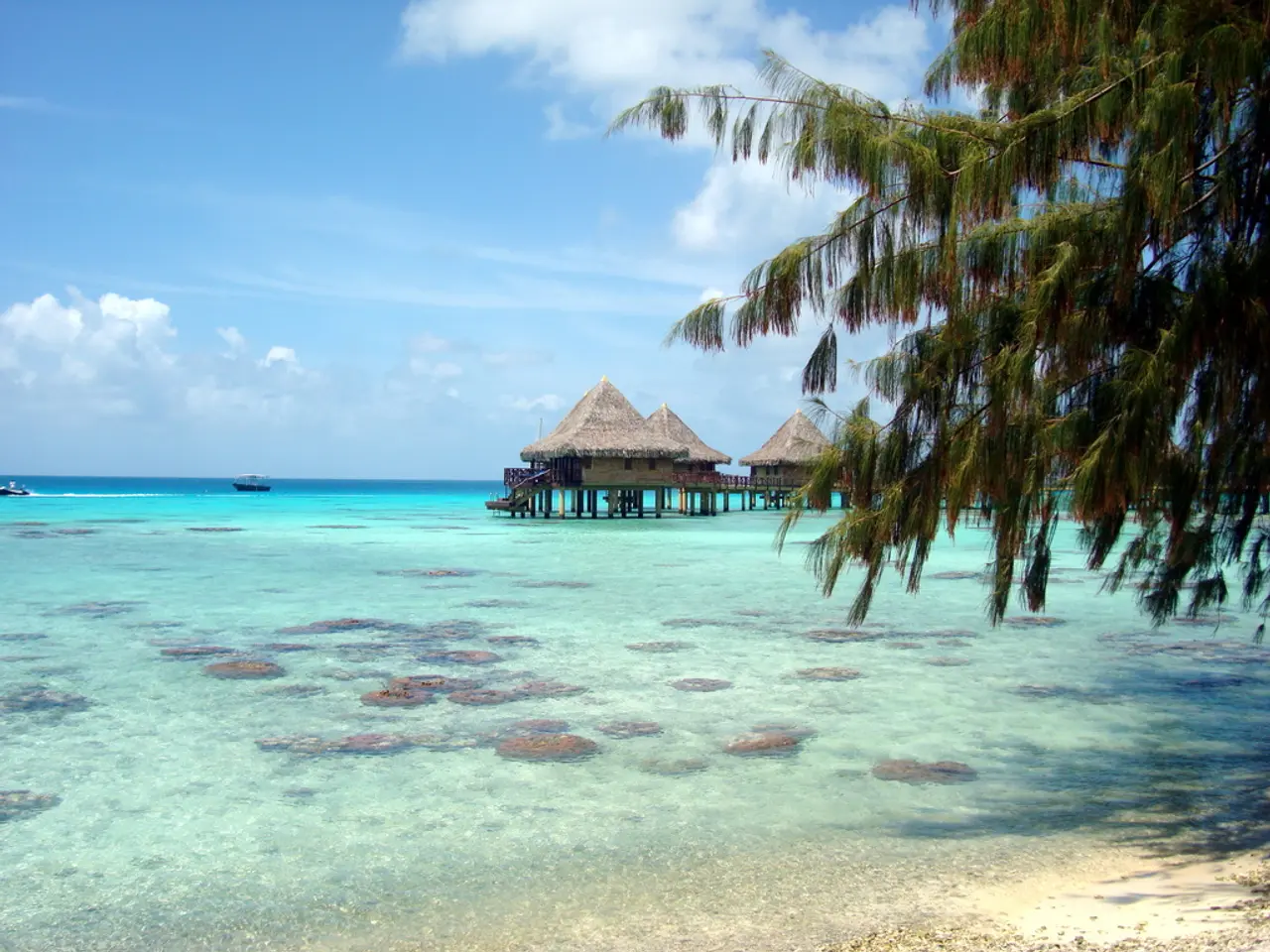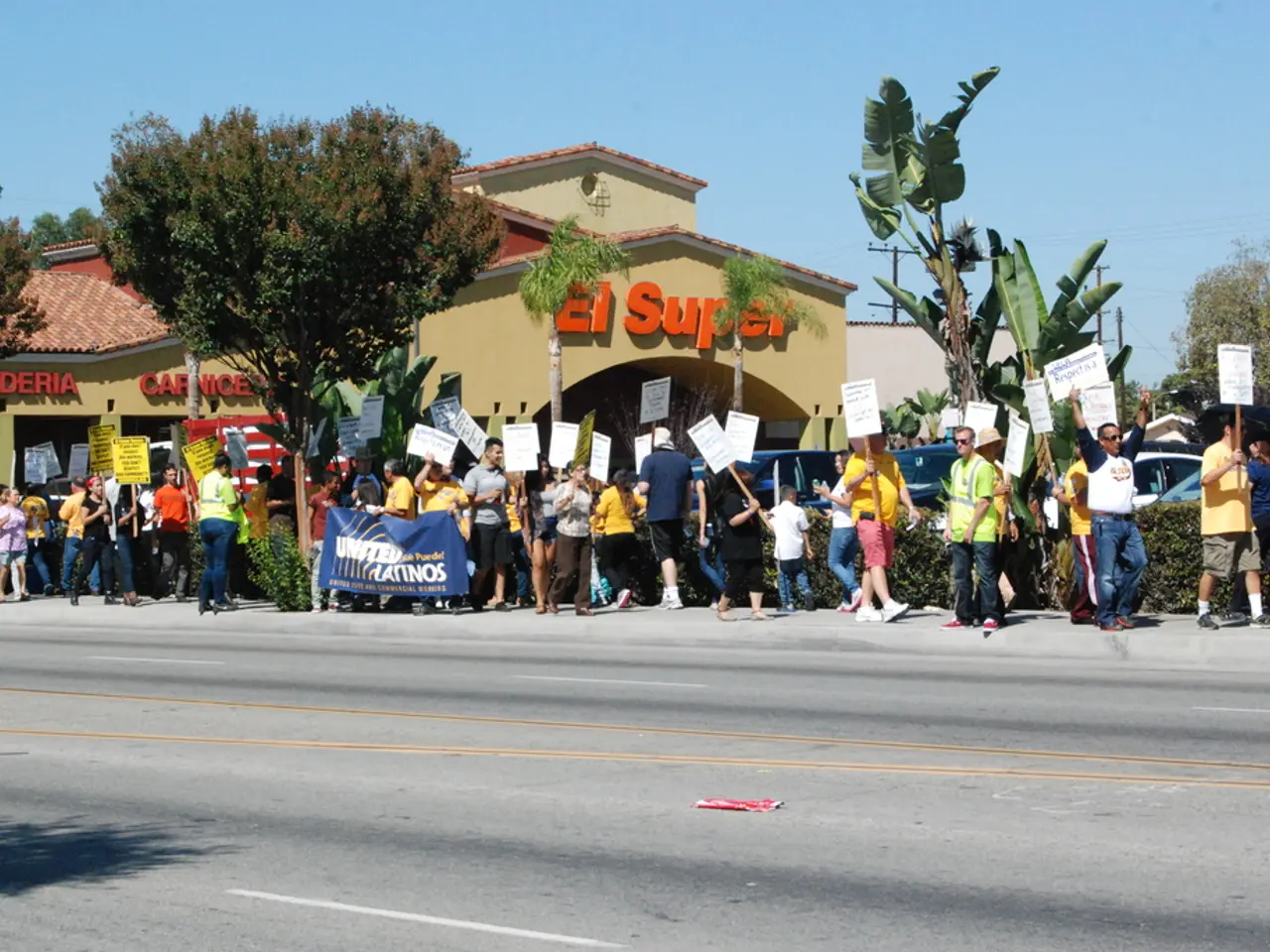European lawmakers endorse the proposed report.
In the town of Wedel, located just 20 kilometers from Hamburg and accessible via S-Bahn in less than half an hour, a significant development project named "Wedel Nord" is causing controversy. The proposed project, which includes around 1,000 housing units for a new neighborhood, has sparked a strong opposition from a citizens' initiative (CI).
The CI, named "No to Wedel Nord," is a broad coalition of 30 organisations including More Democracy, German Environmental Aid (Bund), NABU, SPD, SSW, and the Left party. The initiative is not against new construction in general, but is concerned about the town's infrastructure, such as streets, schools, and medical facilities, being able to accommodate the expected influx of people from the project.
Claudine Nierth, state chairwoman of More Democracy, states that they are taking back their rights with this initiative. Serpil Midyatli, SPD state chairwoman, criticizes the state government for unnecessarily restricting the participation rights of citizens.
The CI has reached the necessary quorum of at least 2,000 signatures, and now needs to collect 20,000 valid signatures for the Kiel state parliament to address its demands. If no agreement is reached, the coalition would need 80,000 signatures to enforce a referendum in the third stage.
The local supervisory authority in Kiel has six weeks to examine whether the citizens' initiative meets all formal criteria. If it does, Wedel's town council must decide whether to adopt the CI's request by resolution. If the town council does not adopt the request, a citizens' vote will take place within three months.
Municipal councils have the ability to prevent citizens' initiatives, but it is unclear if this will be the case with the "No to Wedel Nord" initiative. Recently, the black-green majority in the Kiel state parliament changed the municipal law, introducing higher hurdles for the involvement of the population. Municipal councils can now prevent citizens' initiatives relating to construction projects by a two-thirds majority, a controversial change in the municipal law.
However, the "Save the Citizens' Vote" initiative has been launched, aiming to reverse the recent municipal law reform in Schleswig-Holstein. More Democracy had shown in its citizen petition report that the means of direct democracy are rarely used in Schleswig-Holstein, with only about 17 citizen petitions per year in the approximately 1100 municipalities.
The CI is skeptical about whether the new buildings will provide affordable housing for families on a larger scale. Extensive online debates have occurred on topics like property and fiscal responsibility, and citizens' assemblies have been conducting discussions on various issues such as non-smoker protection and sustainable media landscapes. If specific details about the "Save the Citizens' Vote" initiative are needed, local or regional news sources might provide more direct information.
As the "No to Wedel Nord" initiative continues to gather support and signatures, the future of the large-scale development project remains uncertain, with the potential for a significant impact on the town's infrastructure and the future of direct democracy in Schleswig-Holstein.
The "No to Wedel Nord" initiative, a coalition of 30 organizations, is actively concerned with the policy-and-legislation surrounding the large-scale development project, voicing their concerns about infrastructure capabilities for the projected influx of people. Claudine Nierth, state chairwoman of More Democracy, asserted that this initiative is a means of taking back their rights in this politics issue.
As the CI works towards collecting 20,000 valid signatures, general-news sources will keep an eye on the progress of the initiative, as it may have a significant impact on both the town's infrastructure and the future of direct democracy in Schleswig-Holstein.





